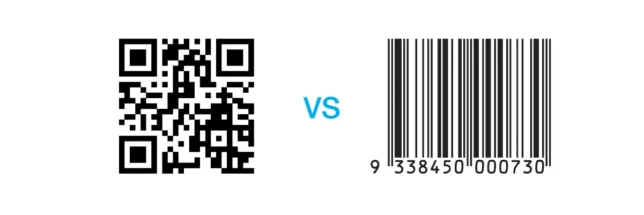QR codes are used to connect people with online information and are easily scanned using the camera of smartphones without needing to initiate any apps. It is this ease and the mass adoption by the general public that separates them from regular barcodes and other technology.
QR codes (which stands for Quick Response) are a type of matrix barcode known as a 2D barcode that is created using an online QR code generator. When scanned they provide details about the object/place to which they are associated, similar to traditional UPC barcodes, but with an ability to provide significantly more information and interactions due to the way in which information is stored and read.
10 awesome things you can do with a QR code
QR codes use customer interactions to boost sales and increase customer loyalty. There are many options for what a QR code can instigate. You need to think about what interaction you want from customers or the journey you are going to take people on. It can be as simple as a website or re-order form, or some other innovative and entertaining way of engaging with your business (like social media or chat).

| 1. Single URL QR codes (static and dynamic) Link to a website or landing page. Can be static or dynamic. | |
| 2. Multi-URL QR codes (static and dynamic) redirect users to a specific link based on location, time, amount of scans and/or language settings | |
| 3. Vcards (static and dynamic) Forget traditional business cards, VR cards provide the same information and more including social media, resumes and portfolios. | |
| 4. H5 editor QR codes (dynamic) H5 QR codes allow you to create direct web pages that will be opened in mobile browsers, without needing a domain host. They are commonly used in marketing campaigns, events and for restaurant and bar menus. | |
| 5. Files (static and dynamic) Link to an MP3 (sound only), MP4, PDF or Jpeg. | |
| 6. Social media (static or dynamic) Link to one or all of your social media profiles at once. | |
| 7. WIFI codes (static) Connect users to WIFI instantly without typing passwords. | |
| 8. App store (dynamic) Link directly to your app on the app store (automatically detects operating system). | |
| 9. Email (dynamic) Send personalised and customised emails to promote products, events and drive traffic to your website or social accounts. | |
| 10. Text (static) Display simple text such as words, numbers or special characters and needs no internet connection to work. |
QR Codes V Barcodes

Barcodes are one-dimensional and the data stored in them is read horizontally, whereas QR codes are two-dimensional and the data stored in them is read horizontally and vertically. Both barcodes and QR codes can be scanned using a laser or a smartphone as long as the tool being used has the capability of reading vertical and horizontal data. While a smartphone will automatically scan a QR code you will usually need a special app to scan traditional barcodes. Traditional barcodes still remain the most common way for businesses to register and identify goods and manage product inventory.
Barcodes are typically rectangular and require a scanning device to read the barcode’s data horizontally, whereas QR codes are usually square-ish shaped and display data both vertically and horizontally. While barcodes hold key product information at the point of sale, such as the price and name of the manufacturer. Because of their structure, QR codes can offer more information and do more things, such as location data, URLs to promotions and product landing pages. Due to a QR code’s square shape, it can hold much more data compared to a barcode. QR codes can hold hundreds of times more encrypted characters than a barcode can.
want to know more: learn how to create your own QR codes – CLICK HERE

















